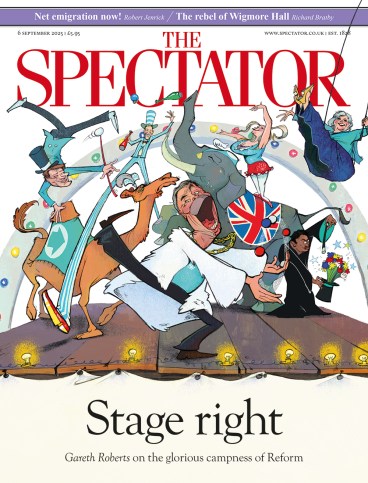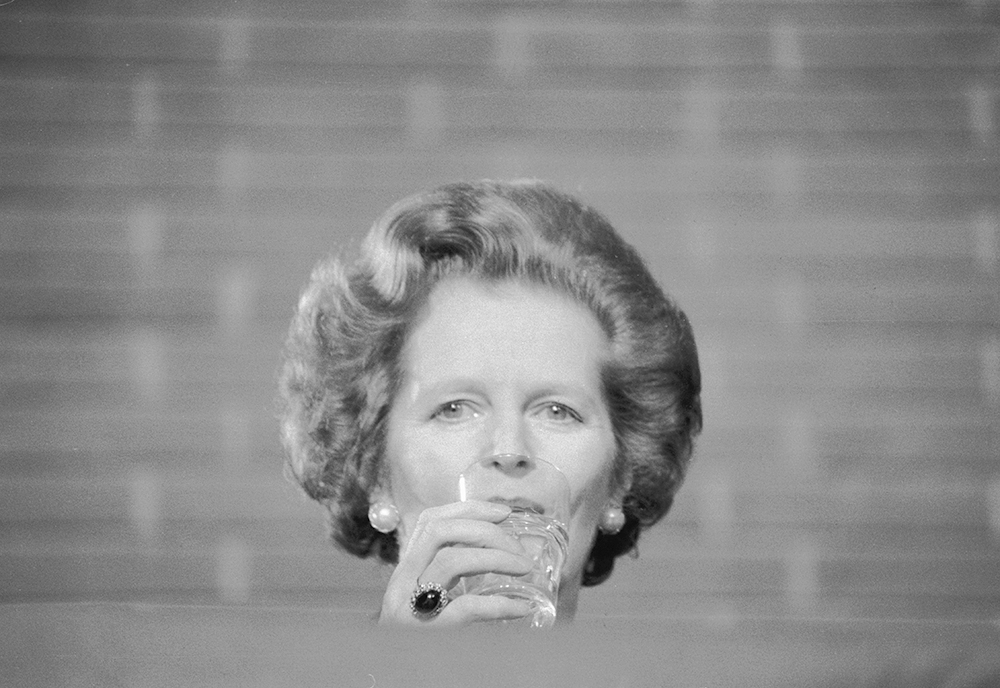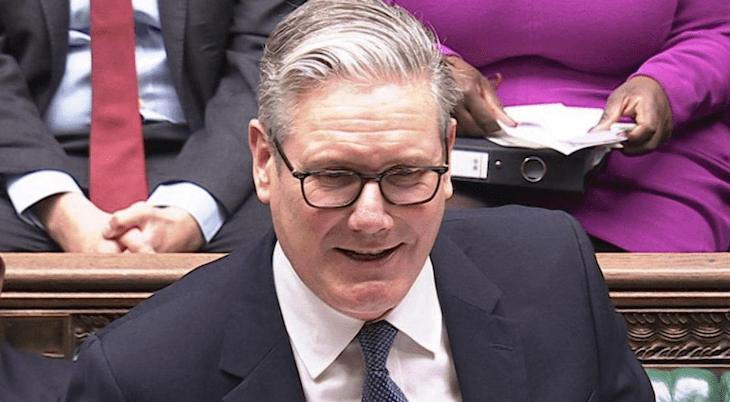
Autumn: surely one of the most beautiful words in the language. All the other seasons are expressive, almost even onomatopoeic, worthy of being serenaded by Vivaldi, but autumn has a gentle resonance. Mists and mellow fruitfulness, not to mention the grouse season. School and university accustomed most of us to think of the year beginning at the Michaelmas term rather than in January. This is reinforced now that parliament is back – though with Sir Stumbler in charge, it is more a matter of fogs and sour fruitlessness.
That brings up memories of a different era, one which was immensely fruitful though never mellow. The 100th anniversary of Margaret Thatcher’s birth is approaching. I was having dinner with my old friend John O’Sullivan and of course we talked of the Lady. I occasionally tried to write speeches for her, which was a nightmare. Ronnie Millar, her principal speech-writer, would often say: ‘I love/hate that woman. I can’t tell you how intensely I sometimes love/hate her.’ Anyone who was involved in speech-writing, even peripherally like me, knew what Ronnie meant.
John O’Sullivan worked for her in No. 10. He reminded me of something that a permanent secretary once said. ‘She could be and frequently was impossible. As a result, time might be wasted. But there was one point on which I felt no doubt and nor, I think, did my colleagues. We had the privilege of being there while history was being made.’
John has recently written a book, The President, the Pope, and the Prime Minister, which focuses on the fact that all three – John Paul II, Ronald Reagan, Mrs T – survived an assassination attempt. It is less surprising that the Pope believed he might have been saved because his earthly task was not complete. But it becomes clear that behind the insouciance, President Reagan was a much more religious man than the public impression would suggest. He too was ready to believe he had been spared because he still had work to do.

John once asked Lady Thatcher whether she had a similar sense of walking with destiny. If so, destiny would have had a point. The pope and the president would have had reasonably competent successors but in 1984, when the IRA came close to murdering her, there would have been no good candidates to pick up the banner of Thatcherism. So was God a Thatcherite?
Grouse demanded claret, and received it
Any such notion fell victim to the Lady’s rooted commonsensical English pragmatism. Mrs Thatcher refused to see a religious dimension in her survival. She had merely been lucky. Her own religious views seem to have been tepid. She moved from the dreariness of her natal Methodism to the easy conformity of the Church of England. Apropos of the C of E, her strongest emotion appears to have been a disapproval of many of its most senior clerics. She usually preferred the chief rabbi of the day.
As regards secular providence, the Lady herself was not really interested in wine. She once had to be dissuaded from serving English wine at a state banquet. Today, there are English bottles which almost approach passing muster. That was not the case in the 1980s. Regardless, John and I found decent bottles to toast her memory. White Pernand-Vergelesses has always been insufficiently recognised. That is no longer true. We took care of a couple of bottles of 2014, which have come along excellently. Grouse demanded claret, and received it, in the form of an ’05 Lynch-Bages. Only a fifth growth but very much a super fifth, from a great year, to toast a great Lady.







Comments